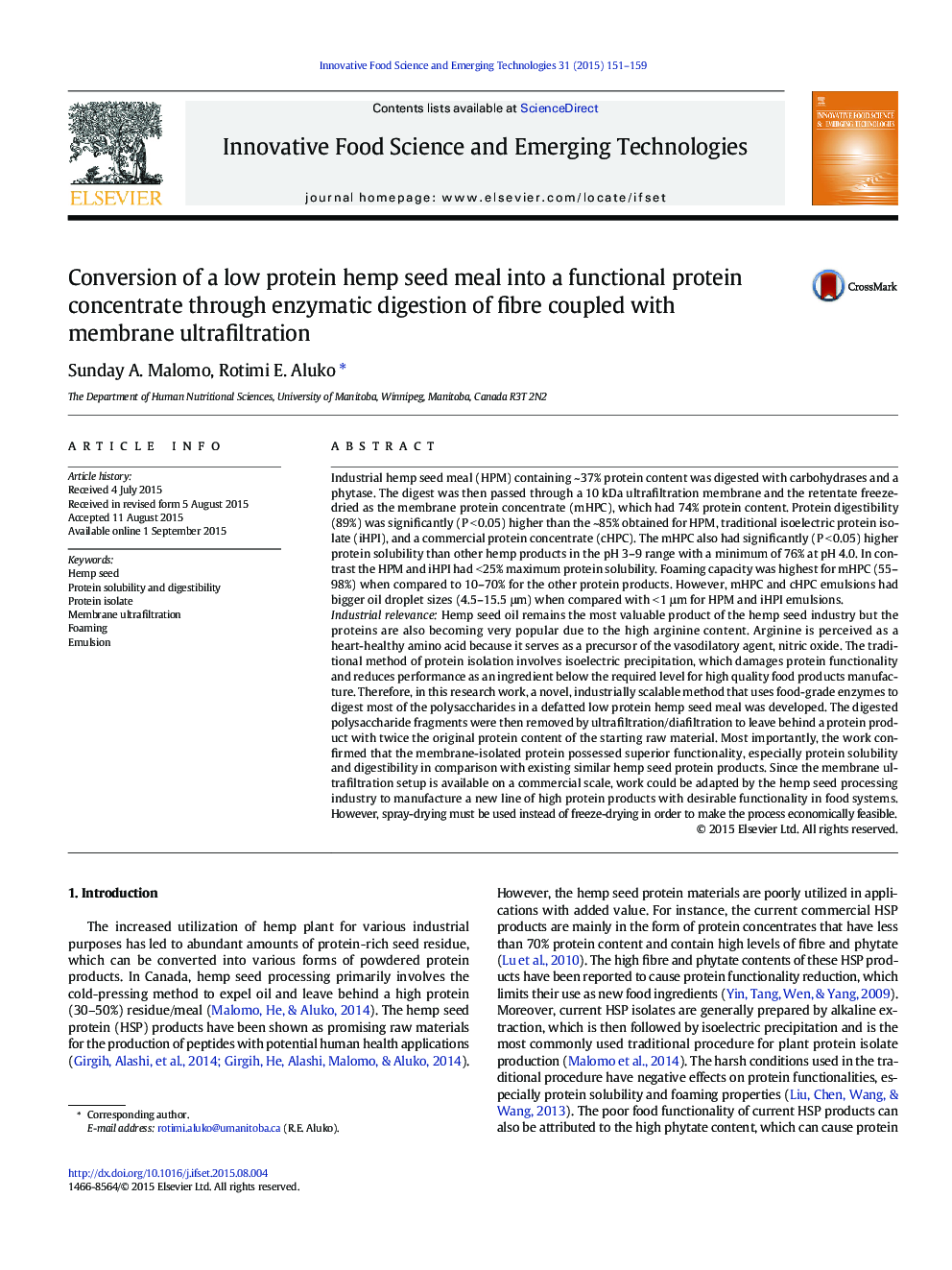| کد مقاله | کد نشریه | سال انتشار | مقاله انگلیسی | نسخه تمام متن |
|---|---|---|---|---|
| 2086294 | 1545535 | 2015 | 9 صفحه PDF | دانلود رایگان |
• Industrial hemp seed protein meal (HPM) was treated with carbohydrases and a phytase.
• Enzyme treatment was combined with ultrafiltration to remove digested products.
• The process converted the 37% protein HPM into a 74% protein concentrate (mHPC).
• The mHPC had a minimum 76% protein solubility at pH 4.0 compared to 7.5% for HPM.
• The mHPC had higher protein digestibility and foaming capacity than HPM.
Industrial hemp seed meal (HPM) containing ~37% protein content was digested with carbohydrases and a phytase. The digest was then passed through a 10 kDa ultrafiltration membrane and the retentate freeze-dried as the membrane protein concentrate (mHPC), which had 74% protein content. Protein digestibility (89%) was significantly (P < 0.05) higher than the ~85% obtained for HPM, traditional isoelectric protein isolate (iHPI), and a commercial protein concentrate (cHPC). The mHPC also had significantly (P < 0.05) higher protein solubility than other hemp products in the pH 3–9 range with a minimum of 76% at pH 4.0. In contrast the HPM and iHPI had < 25% maximum protein solubility. Foaming capacity was highest for mHPC (55–98%) when compared to 10–70% for the other protein products. However, mHPC and cHPC emulsions had bigger oil droplet sizes (4.5–15.5 μm) when compared with < 1 μm for HPM and iHPI emulsions.Industrial relevanceHemp seed oil remains the most valuable product of the hemp seed industry but the proteins are also becoming very popular due to the high arginine content. Arginine is perceived as a heart-healthy amino acid because it serves as a precursor of the vasodilatory agent, nitric oxide. The traditional method of protein isolation involves isoelectric precipitation, which damages protein functionality and reduces performance as an ingredient below the required level for high quality food products manufacture. Therefore, in this research work, a novel, industrially scalable method that uses food-grade enzymes to digest most of the polysaccharides in a defatted low protein hemp seed meal was developed. The digested polysaccharide fragments were then removed by ultrafiltration/diafiltration to leave behind a protein product with twice the original protein content of the starting raw material. Most importantly, the work confirmed that the membrane-isolated protein possessed superior functionality, especially protein solubility and digestibility in comparison with existing similar hemp seed protein products. Since the membrane ultrafiltration setup is available on a commercial scale, work could be adapted by the hemp seed processing industry to manufacture a new line of high protein products with desirable functionality in food systems. However, spray-drying must be used instead of freeze-drying in order to make the process economically feasible.
Journal: Innovative Food Science & Emerging Technologies - Volume 31, October 2015, Pages 151–159
